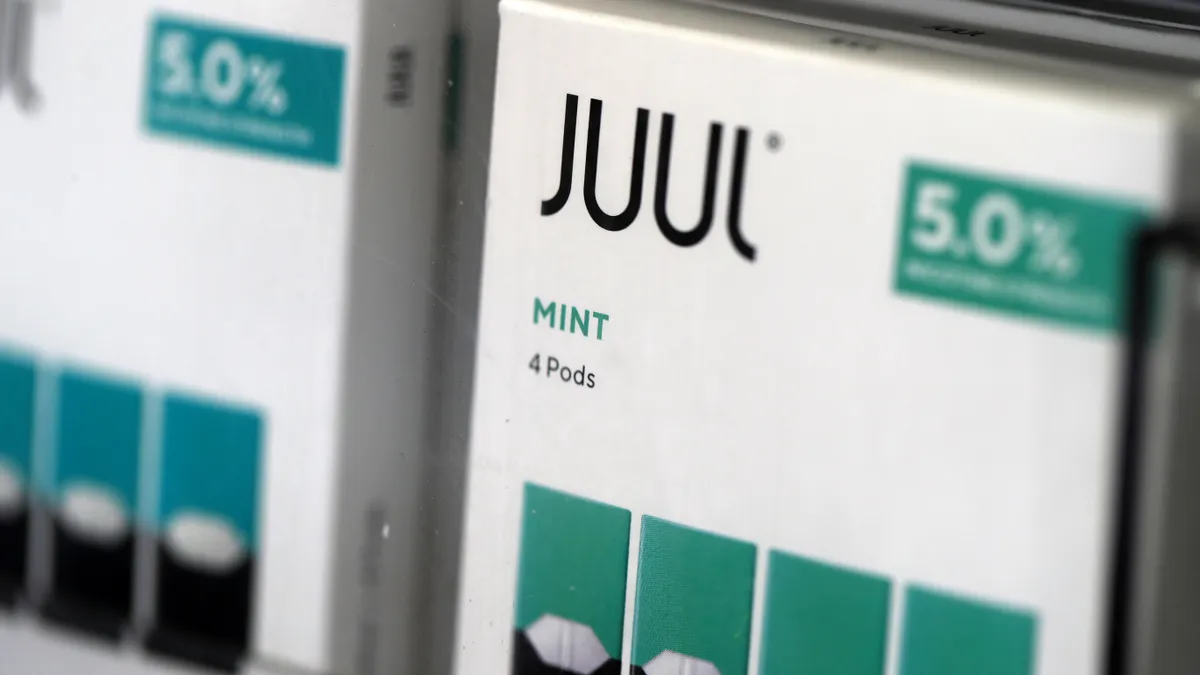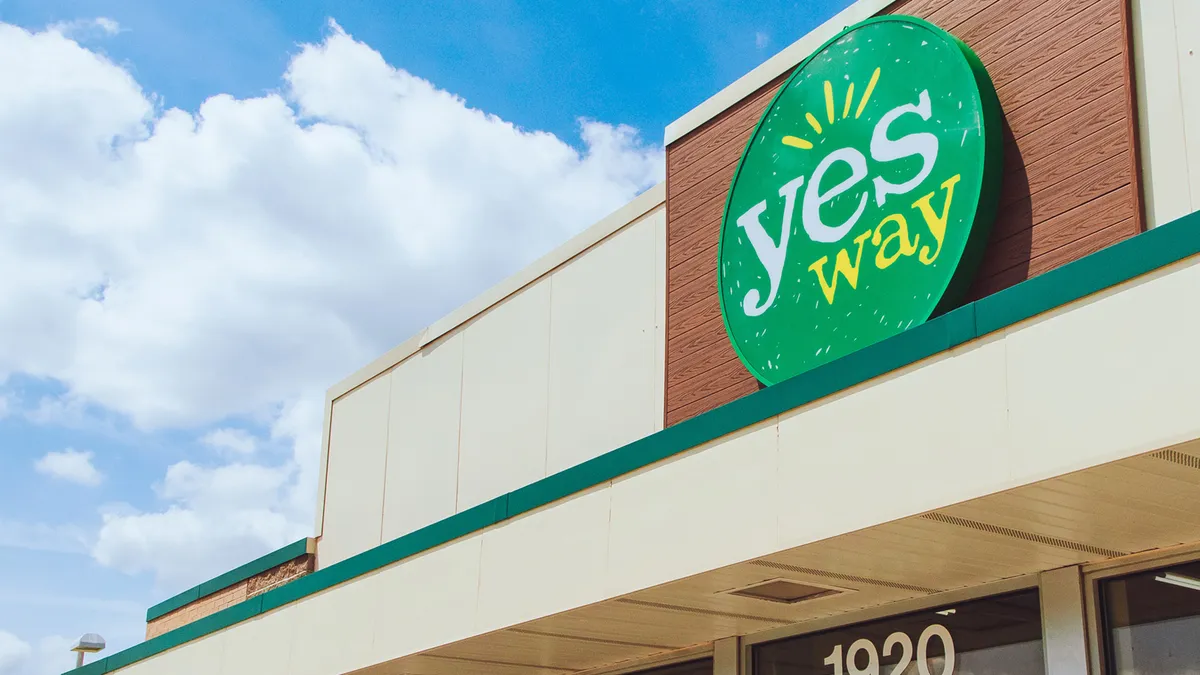Dive Brief:
- Juul Labs has agreed to pay $462 million to six states and the District of Columbia for its alleged role in contributing to the rise of underage e-cigarette use in the U.S., according to a Wednesday announcement from the New York State Attorney General.
- Beyond the payouts, the agreement requires Juul products to be kept behind the counter in retail stores, and the company must verify the age of people directly selling or promoting Juul products online. The agreement also places numerous restrictions on Juul’s sales and marketing abilities moving forward.
- This marks the largest multistate settlement with Juul to date as the e-cigarette maker endures a tumultuous year filled with lawsuits, corporate layoffs and revenue declines.
Dive Insight:
With its latest settlement, Juul has now paid over $1 billion in a combined 5,000 lawsuits across 47 U.S. states, according to a statement Juul released Wednesday. Prior to this latest settlement, one of Juul’s larger multistate agreements to date was a $438.5 million settlement with 34 states in September 2022.
Besides New York and the District of Columbia, Juul will pay California, Colorado, Illinois, Massachusetts and New Mexico. The e-cigarette maker is required to make its first payment to these states within 90 days of the effective date of the agreement followed by seven annual payments.
The agreement also is binding on Juul’s former directors and executives and any business they control that sells nicotine products.
“Juul lit a nationwide public health crisis by putting addictive products in the hands of minors and convincing them that it’s harmless — today they are paying the price for the harm they caused,” New York Attorney General Letitia James said in the announcement.
Regarding its marketing and sales moving forward, the e-cigarette maker cannot use anyone under the age of 35 in promotional material, operate youth education/prevention campaigns or sponsor school-related activities.
Additionally, Juul also must limit the amount of retail and online purchases individuals make of its products, perform compliance checks at 5% of New York’s retail stores that sell Juul’s products for at least four years, and add millions of documents to a depository to inform the public on how the company created a public health crisis.
In its statement, Juul noted that the settlement represents a “critical part” in the company’s commitment to resolve its past issues and that the agreement provides the financial resources needed to develop cessation programs and reflect its current business practices.
“With this settlement, we are nearing total resolution of the company’s historical legal challenges and securing certainty for our future,” Juul stated.






